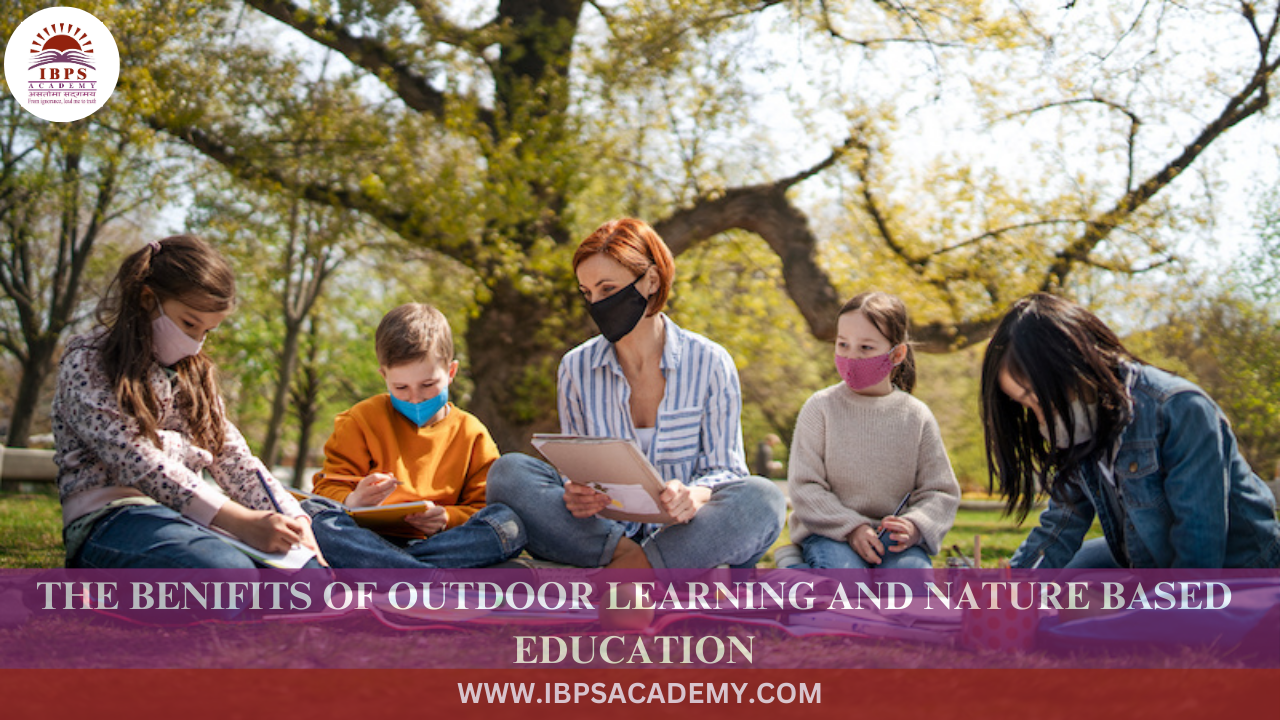THE BENIFITS OF OUTDOOR LEARNING AND NATURE BASED EDUCATION
Published on: Dec 31, 2024
THE BENIFITS OF OUTDOOR LEARNING AND NATURE BASED EDUCATION:
Outdoor learning and nature-based education offer numerous benefits that support the physical, cognitive, emotional, and social development of students. These approaches engage learners in active, hands-on experiences that foster a deep connection to nature, as well as enhance critical life skills. Here are some key benefits:
1. Enhanced Physical Health
- Improved Fitness: Outdoor learning encourages physical activity, whether it's hiking, exploring, or participating in outdoor games. This helps improve physical health, stamina, and coordination.
- Better Immune System: Spending time outdoors, particularly in natural environments, can boost the immune system and reduce the risk of illness.
- Reduced Stress and Fatigue: Exposure to nature has been linked to reduced stress levels, improved mood, and decreased mental fatigue.
2. Cognitive Development
- Increased Attention and Focus: Nature-based learning environments reduce distractions and enhance students' ability to concentrate. Studies show that exposure to green spaces improves attention span and working memory.
- Enhanced Problem-Solving Skills: Outdoor learning often involves hands-on, real-world problem solving, which promotes critical thinking, creativity, and collaboration.
- Stimulated Curiosity and Inquiry: Nature invites curiosity. Children are more likely to ask questions and explore, fostering a love of learning.
3. Emotional and Mental Well-Being
- Reduced Anxiety and Depression: Natural environments are therapeutic. They have been shown to reduce symptoms of anxiety, depression, and attention deficit disorders.
- Improved Mood and Self-Esteem: Spending time outdoors can lift spirits, boost happiness, and promote positive mental health.
- Connection to the Environment: Nature-based education fosters a deeper emotional connection to the environment, helping children to develop a sense of responsibility and empathy towards the earth.
4. Social and Collaborative Skills
- Teamwork and Cooperation: Outdoor learning activities often require collaboration and communication among students, which strengthens social skills and promotes teamwork.
- Building Confidence: Learning outside the classroom often challenges students in new ways, helping them build confidence and resilience.
- Leadership Skills: Being in outdoor settings allows for leadership opportunities, whether it’s organizing group activities or solving challenges as a team.
5. Enhanced Creativity
- Exploration and Imagination: Nature offers limitless opportunities for imagination and creative expression. Children are encouraged to think outside the box and use natural resources to create art, stories, and solutions.
- Hands-On Learning: Nature-based education often involves tactile experiences, such as building with natural materials or engaging in outdoor art projects, which stimulate the brain and promote innovative thinking.
6. Environmental Stewardship
- Promoting Sustainability: Nature-based learning helps students understand environmental issues such as climate change, pollution, and conservation. It encourages sustainable practices and a sense of environmental stewardship.
- Building a Connection to Nature: By spending more time in nature, students develop a strong connection to the natural world, fostering a lifelong commitment to protecting it.
7. Real-World Learning
- Experiential Learning: Outdoor education often involves learning through direct experience. Whether studying ecology in a forest, conducting a science experiment, or learning about geography through hiking, students gain a practical understanding of the world around them.
- Life Skills: Activities such as navigating a trail, managing a campfire, or even weather-watching teach students practical skills they can use in their daily lives.
8. Academic Achievement
- Improved Academic Performance: Studies have shown that students engaged in outdoor and nature-based learning tend to perform better academically, particularly in subjects like science and math, due to the hands-on learning experiences that these settings provide.
- Increased Engagement in Learning: Students in nature-based settings often exhibit more enthusiasm and engagement in their studies because of the interactive and immersive learning experiences.
9. Fostering a Lifelong Love of Learning
- Curiosity and Exploration: Outdoor learning nurtures a sense of curiosity and exploration that extends beyond the classroom, inspiring students to pursue further learning and inquiry throughout their lives.
- Motivation to Learn: Being in a dynamic outdoor environment can help reignite interest in education, especially for children who struggle with traditional classroom settings.
10. Holistic Development
- Whole-Child Approach: Outdoor learning supports the holistic development of the child, nurturing not just academic skills, but also emotional, social, and physical growth. It integrates multiple aspects of development in a balanced way.
11. Resilience and Adaptability
- Exposure to Challenges: Outdoor activities often place children in situations that require problem-solving and adaptability (e.g., weather changes or navigating outdoor spaces), which builds resilience and helps them deal with unexpected challenges.
Conclusion:
Outdoor learning and nature-based education provide an enriching environment that supports academic, physical, emotional, and social development. They promote creativity, teamwork, and a sense of responsibility towards the environment, while simultaneously improving mental health and well-being. By integrating outdoor learning into education, we foster a generation of curious, resilient, and environmentally conscious individuals.


